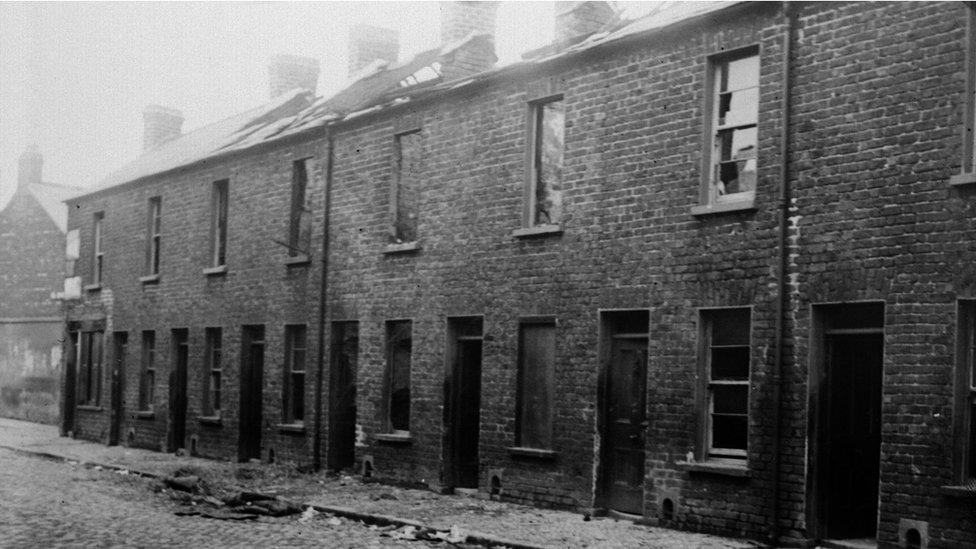NI 100: Spotlight on Northern Ireland's contested centenary
- Published
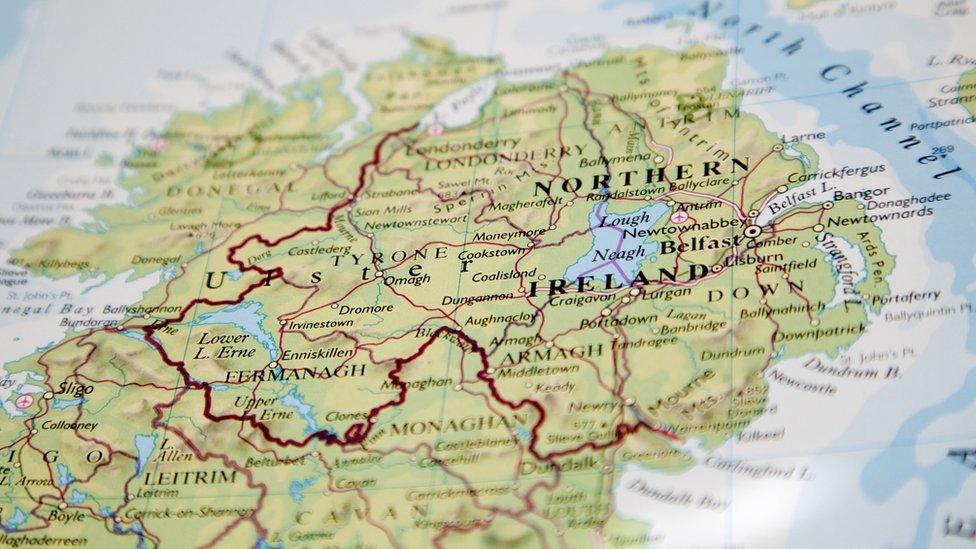
There is a chasm in attitudes towards the NI centenary from political parties
Everyone loves a big birthday, don't they? Well not when it comes to Northern Ireland's contested centenary.
The Orange Order has put "Happy Birthday" banners up outside some of its halls. In the north west, I chatted to young unionists who have been using the centenary as an excuse to find out offbeat facts about local innovators.
These include the inventor of the portable heart defibrillator and the developer of football's penalty kick (Hillsborough's Frank Pantridge and Milford's William McCrum, in case you didn't know).
However nationalists have made it abundantly clear they won't have anything to do with any celebration.
Both the SDLP and Sinn Féin boycotted the Northern Ireland Office's panel co-ordinating the commemorations and Sinn Féin has blocked the erection of a commemoration stone, shaped like the six counties, which unionists wanted to put in Stormont's grounds.
Not only is there no stone, a lot of the Orange marches and centenary events due to take place have had to be cancelled or postponed thanks to the pandemic.
The chasm in attitudes towards this centenary was always predictable given the contrasting aspirations of our political parties.
For nationalists, this summer marks not the foundation of a brand new state, but one hundred years of the partition of our small island, a cause for bitter and continuing regret.
Tragic past and uncertain future
Beyond that, there's the folk memory of the intense violence which accompanied Northern Ireland's birth.
No one alive today remembers what northern Catholics labelled the "pogrom" of the 1920s.
However older people might well have up grown up hearing tales of the expulsion of Catholic workers from the shipyard and the sectarian killing spree that accompanied the political upheaval of that decade.
Reading historian Alan Parkinson's excellent book A Difficult Birth, I was struck by some parallels between the violence of the 1920s and the troubles I covered in the 1980s and 90s.
Belfast's flash points were often exactly the same then as now. Allegations of state involvement in the murder of Catholics abounded.
Rural Protestants lived in fear of IRA attack in their settlements close to the new border.
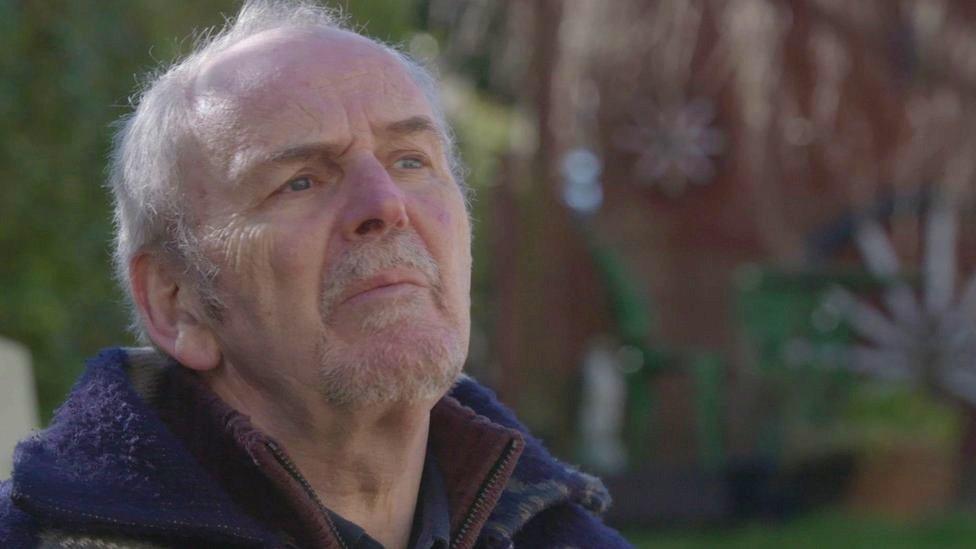
Peter Heathwood was paralysed by a loyalist gunman
Until Spotlight asked me to explore our tragic past and uncertain future, this was just an academic observation.
But, in the course of making my film, I met people whose families suffered twice - first during Northern Ireland's "difficult birth", then again in the course of our more recent Troubles.
People like Peter Heathwood, paralysed by a loyalist gunman in a case of mistaken identity in 1979.
Back in the 1920s, Peter's uncle Austin escaped an ambush on his fruit and vegetable cart near the Markets area of Belfast by forcing his horse into a gallop.
However Austin's teenage cousin wasn't so lucky - 17-year-old Thomas lost his life amidst a fierce exchange of fire in the Carrick Hill area of Belfast in March 1922.
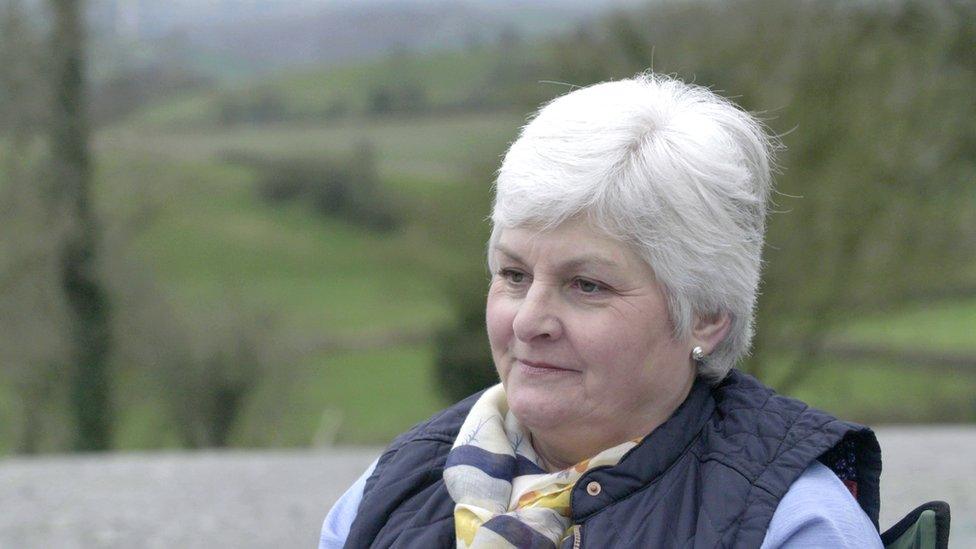
There's also Valerie Lockhart, whose great-grandparents were shot dead by IRA gunmen who arrived at their front door in the isolated rural hamlet of Altnaveigh, County Armagh, one terrible night in June 1922.
Valerie's family also lost a teenage relative, Robert Chambers, in the Kingsmills massacre of 1976.
She told me her family understands all too well how the spiral of violence here has torn lives apart down through the generations.
Peter believes the best way to mark this year's centenary would be to build a memorial wall at Stormont bearing the names of all the victims of political and sectarian violence since the state's foundation.
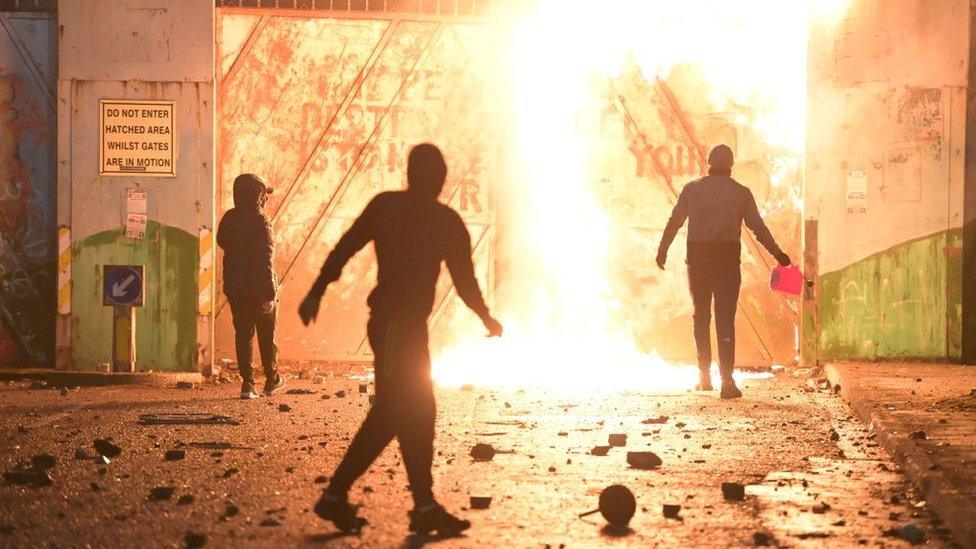
Do we still have the hand of our violent history resting upon our shoulders?
It was a privilege to meet Peter and Valerie, whose stories exemplify the darkest aspects of Northern Ireland's first 75 years. Talking to them left me with many questions.
Did the Good Friday Agreement nearly a quarter of a century ago represent a definitive break with that era? Or do we still have the ominous hand of our violent history resting upon our shoulders?
Will we navigate whatever changes the future might bring peacefully and democratically?
And, against the backdrop of the Irish Sea economic border and the erosion of the Protestant majority, how much longer will Northern Ireland continue to remain part of the UK?
To help me answer those questions, I have been hearing from Prime Minister Boris Johnson and Taoiseach (Irish PM) Micheál Martin, as well as Arlene Foster and Michelle O'Neill, the First and Deputy First Ministers.
We have also commissioned a poll on both sides of the 100-year-old border to find out what the public think. And we hear from others who represent different facets of life here, including the boxer Wayne McCullough and the TV presenter Gloria Hunniford.
Our Spotlight film, A Contested Centenary, will be broadcast on BBC One Northern Ireland on Tuesday, 20 April at 21:00 BST.
Then, immediately after the programme Jim Fitzpatrick will host a live discussion here on the BBC News NI website, in which we shall examine some of the themes explored in my film and delve further into the detail of the opinion poll results.
Related topics
- Published11 February 2021
